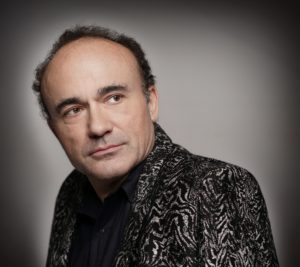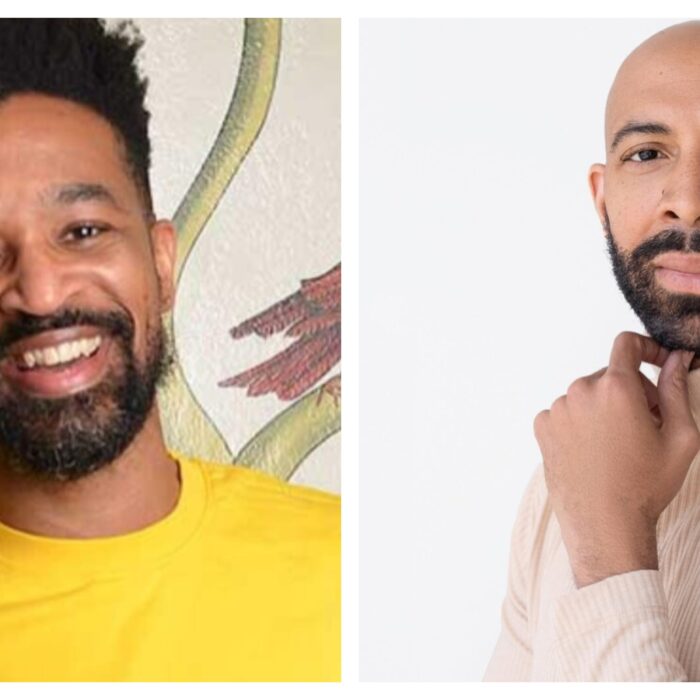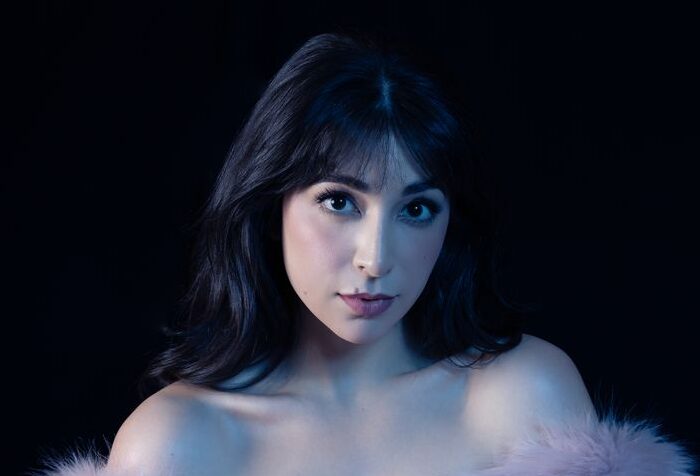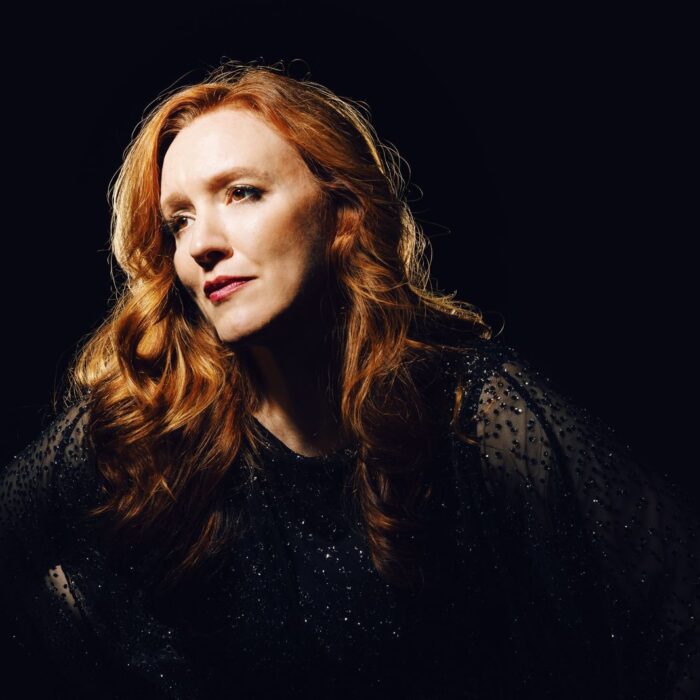
Q & A: Frédéric Chaslin on ‘Lakme’ & the Many Versions of ‘Les Contes d’Hoffmann’
By Francisco SalazarFrédéric Chaslin is one of today’s most important French conductors in the world. He has performed at every major opera theater with major opera stars in a variety of repertoire. He has even composed numerous operas.
This season Chaslin is exploring the French repertoire. He opened the season with “Lakmé” at the Liège Opera House and is set to conduct a new production of “Les Contes d’Hoffmann” at the Teatro alla Scala in March 2023. The conductors is also doing a number of orchestral concerts and concentrating on his compositions.
OperaWire spoke to the conductor about French opera, Offenbach and the various versions of “Les Contes d’Hoffmann,” and “Lakmé” and its place in the modern world.
OperaWire: This year you conduct two very important French pieces from different composers. Tell me what these pieces mean to you.
Frédéric Chaslin: French repertoire is always close to me, but not because I was born in France. My mother is of Italian origin, my father was born in Odessa. But French is my fluent language and I think a conductor can bring the most when he totally masters the language.
I am not a huge fan of Thomas, but “Mignon” and “Hamlet” are two exceptions. The reason they were big successes at their time lies in the fact that they are full of rich beautiful tunes and that the drama is well constructed.
Lakmé is dearer to me because the music is splendid. I was lucky to conduct my first “Lakmé” with Natalie Dessay and to this day never surpassed in the role.” That was at the Opera Comique back in 1995. You cannot forget such a moment.
OW: “Lakmé” is not as common as Offenbach’s opera. Why do you think that and what are some of the interesting elements of the work that are you discovered upon conducting Delibes’ score?
FC: Again, the beauty of the melodies. And Delibes was famous for his ballets, and he included one short ballet in “Lakmé.” His strong influence of “Carmen” in seen in many parts (the “English Quintet” in the first act and the backstage military music). In short, it is a totally accomplished “Grand Opera” as it was developed at the end of the 19th Century.
OW: Everyone knows the “Bell Song” and the duet. What are some of your favorite parts of the opera?
FC: Well, in addition to “Lakmé,” there is the tenor’s aria and especially the three duets that end each act, between Lakmé and Gerald. Those contain some of the most beautiful melodies of the opera. And Nilakanta, Lakme’s father, has an extraordinary aria before the famous bell aria. It has been, in Liège at least, the peak of the evening, audience-wise.
OW: “Lakmé” has been controversial during this time because it exoticizes a culture. How do you think we can perform this opera in modern times? What are the questions we should ask ourselves as we reflect on the opera and how do you think the production you performed in Liege did that?
FC: It is evident that “Lakmé,” like so many works of that time, reflects the mentality of this epoch. And for that reason, it is an important document, to understand how people felt and thought. Even me, who was born at the end of the 20th century, I was not really thinking too much of many aspects of the piece back in 1995. But after the recent awakenings in the global world, I find ridiculous this dichotomy between the “good English” and the “evil Hindus.” Nilakanta is described almost like what we would call today a “terrorist” ( in fact, a rebel defending his country against the colonists), and Lakmé sings at the end, dying, “you spoke words of love and tenderness that hindus ignore.” Well, hindus invented the art of Love!
OW: Tell me about Hoffmann and Offenbach’s style in contrast to that of Delibes.
FC: Offenbach is a totally different word. He comes from the comic opera, what would be today the musical comedy. He was a genius of « entertainment ». And the fact that, at the end of his life, he decided to write a « serious opera » shows how deep a man and an artist he was, especially when you realize that, although incomplete, this remains as his absolute universal masterpiece. So, as far as the style is concerned it would be comparing West Side Story to Peter Grimes, for instance. Two galaxies far away from each other…
OW: You have done Hoffmann for many years. How has your interpretation deepened?
FC: Yes it has indeed deepened, like any other piece that I conduct regularly (and sometimes, even pieces that you don’t, but you evolve in the meantime and the next approach is deeper). What has definitely improved is my knowledge of the sources, and my convictions about what version would be the most honest, if not the most authentic.
OW: What version are you doing at La Scala and how does that affect your approach?
FC: I have spoken to the direction of La Scala about the necessity to go back to the source as much as possible, and to clean “Hoffmann” from the many add-ons that have been made at the end of the 20th century. There are two trends today: to be “revolutionary” and bring something new and sensational (like discovering a new score from Mozart, or a real, genuine and authentic new version of an existing score) or to go back to what the Germans call the “Urtext,” meaning the manuscript and first edition, in short, something that the composer approved or would have approved. And in the case of Offenbach, the problem is so complex and vast that we would need an entire discussion just to get near to the problem. But in short words, I would say that my conviction has been made for many years that the recent “add-ons” are not authentic or even honest. What is most important to me, is that those add-ons are screaming in my ear saying “this is not right!”
The French is wrong in many places, or badly written in the music, harmonics, and orchestration, everything looks and sounds amateur, fake, and those people who made those “critical editions” refuse to show their sources. I even received from the most famous (or infamous) of them a fax, back in 2001, with a “newly discovered last page” handwritten very recently and… full of musical mistakes!
So, I want to go back to the source, to the purest source, which is the piano vocal score found at the Paris Opera about 20 years ago, dating from the dress rehearsal of the opera. We can reasonably imagine that, at the time of the dress rehearsal, the score was established. And I include, of course, the add-ons made by Guiraud, a close friend of Offenbach, and Raoul Gunsbourg (composer and general manager of the Monte Carlo Opera) as well a close friend, who wrote the beautiful ensemble at the end of the “Juliette act.” Those people knew their Offenbach, and this version has been performed for over a century. The rest is just experiments that tell us about those who made them, and nothing about Offenbach.
The magic of “Hoffmann” has been precisely its capacity, starting from a core that is 100 percent Offenbach, to assimilate a certain amount of alien material, from his friends Giraud and Gunsbourg. I would say, about 25 percent of the work that has come to us is not from the hand of Offenbach, but at least it’s from very capable hands, and people from the same time. So it stayed united, and the magic worked. In the latest versions, we don’t know what we hear, or who wrote what, and this magic fades out and leaves us far away from the fantastic world of “Hoffmann.”
So, my goal at La Scala, as well as in the future editions that I am preparing in collaboration with very prestigious institutions, is to restore the original score, and make all sources available via internet, showing clearly what is dubious, what is certain, and who did what. After this, future performers will be able to choose. And if they chose the fraud at least it will be clear that it is fraud.
OW: French music is sometimes bunched into one genre. Why do you think that French music does not have the same distinctions as say Italian which has Bel Canto, Verismo, and Verdi very clearly separated?
FC: I think it is a lack of knowledge of French music that leads to thinking that it is bunched into one genre. Think of Rameau, Berlioz, Gounod, Bizet, Massenet, Debussy, and Ravel, to choose from the most famous. Those are seven totally different universes. It is not chauvinist to say that there are four main repertoires in the history of music: German, Italian, Russian, and French. And the diversity between those composers is amazing. They have their own universe, nothing would tell a candide listener that “Faust” was written by a composer from the same country as the “Bolero.”
The Italians, since your question mentions Italy, have been more focused on opera, but in the 20th century, they developed a large and sumptuous symphonic repertoire as well. The French composers who decided to dedicate themselves more to Opera (Gounod, Bizet, Massenet) were largely influenced either by Germany or Italy, but they developed their own specific genre.
OW: How does your approach to conducting symphony and opera differ? What are you excited to conduct this year on the road?
FC: I love to conduct operas because I love theatre and drama. It is the drama that excites me in an opera, and that’s why I write a lot of operas (or melodies) myself. My operas “Withering Heights,” and “Monte Cristo,” to mention a few, gave me the immense joy of building a drama in music.
The symphonic repertoire has gained my favor because I don’t have to make so many compromises, with the staging, the singers who are sometimes difficult, the structural inconsistency of having the orchestra on one level, separated from what they have to accompany. Most of the time orchestra players don’t hear the singers at all. This is total nonsense. That’s why I have started to think of a production company that performs operas in mini orchestrations, like my “Pelléas and Mélisande” for 14 players which world premiered last February at the Budapest Opera. It allows the players to be near to the singers and make music TOGETHER. Which is not possible in a pit.
OW: What are some of the operas you want to do in the future?
FC: My own operas! I already have seven and I’m planning at least 12 more. “Tosca” or “Carmen” don’t need me to survive, my “babies” need me to grow up.


